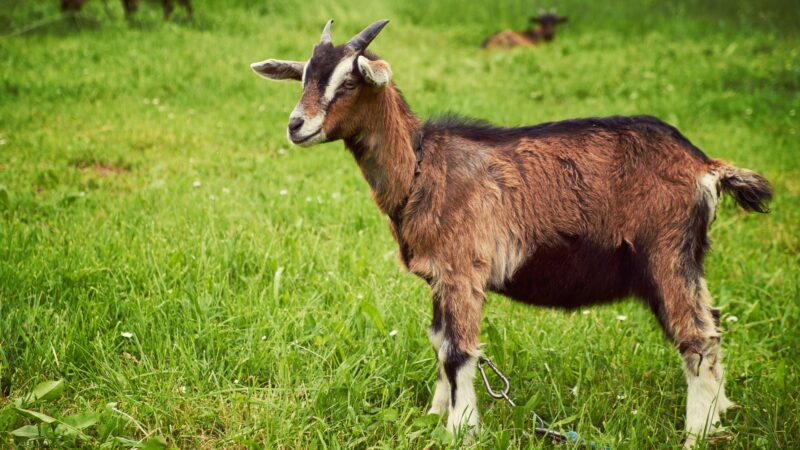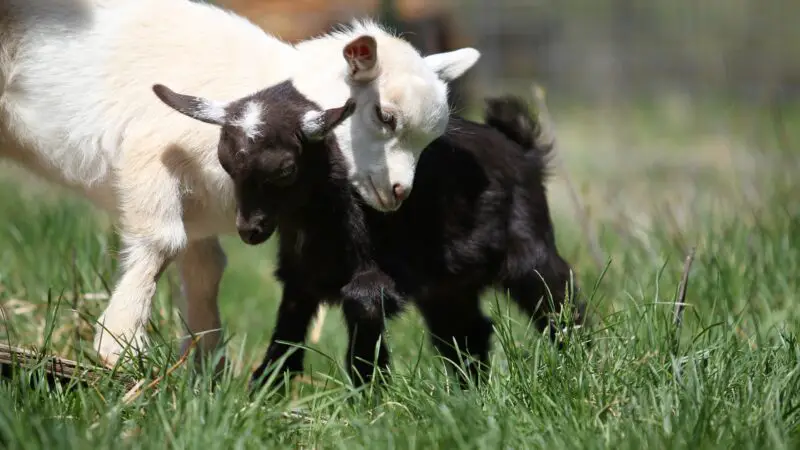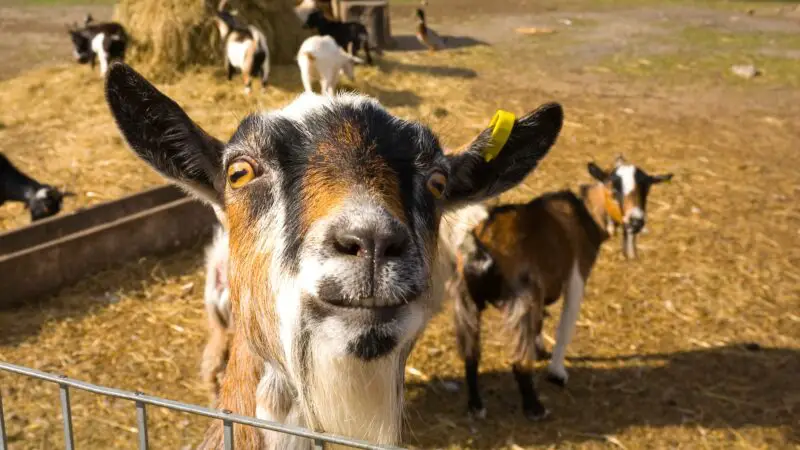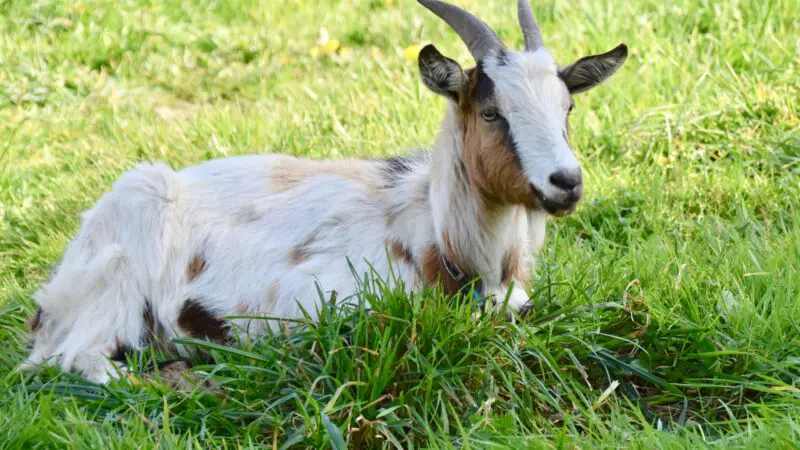Scours in goats, much like that of humans, are signs that something is wrong in their gastrointestinal tracts, which may be bacterial, viral, or parasitic. These harmful microorganisms are usually acquired through the goats’ environments, causing bad bouts of scour in goats.
Treating goat scours depends on the cause of the scours. For bacterial and parasitic scours, goats will be given antimicrobials such as antibacterials and anthelmintics. For viral and non-infectious scours, treatment involves supportive care (e.g. fluid therapy) only.
This article discusses everything you need to know about goat scours, what they are, their causes, treatment plants, prevention, and other interesting information. Read further this article for more!
What Is Scours in Goats?

Scours, also known as diarrhea, is defined as the increased fluidity, frequency, and/or volume of fecal excretion in goats. These feces may be abnormally colored, contain mucous or blood, and be smelly or smellier than usual. It is the leading cause of death in kids, or young goats, of ages 1 to 30 days.
What Causes Scours in Goats?
The major causes of scours in goats may be bacterial, parasitic, viral, or acquired through non-infectious vectors. Here is a guide to these causes:
Bacteria
- E. coli. Scours caused by this bacteria is associated with poor sanitation and environmental conditions of the goats. It is most common at 1 to 4 days of age but is seen generally in kids less than 10 days old. It is also referred to as a “watery mouth” since infected kids will salivate and have a cold mouth.
- Overeating Disease (Enterotoxemia). This disease is often severe and can affect goats of all ages, caused by the bacteria Clostridium perfringens Type C. This bacteria is found in low populations in the gastrointestinal tract of goats but is triggered to release harmful toxins when goats undergo dietary changes such as increased amounts of protein supplements, milk, grain, and/or grass.
- Campylobacteriosis (Campylobacter jejuni). Goats can be exposed to this bacteria by direct contact with infected animals, such as ingesting, licking, or chewing on fecally contaminated water or feed. This disease also affects humans that ingest the meat of affected goats.
- Salmonellosis (Salmonella). Goats acquire the bacteria from their environment directly from their mothers before they were born, or by eating feed that is contaminated with the feces of infected animals. Aside from scours, it is also known to cause abortion in goats.
Virus
- Rotavirus. A group of B rotaviruses can affect kids and causes diarrhea at 2 to 14 days of age. Aside from the effects of scours, these animals may become dehydrated and depressed.
Parasites
- Coccidia. This microscopic protozoan parasite is the most common cause of scours in goats aged 3 weeks to 5 months, especially if they live in confinement houses. Most adult goats carry this bacteria in their intestines but are usually present in small numbers or maybe non-pathogenic.
- Cryptosporidium parvum. Diarrhea caused by this protozoa is usually very liquid in form and yellow in color. It affects kids that are 5 to 10 days old. Infected animals will usually look active and act alert.
- Giardia. Common but not limited to 2 to 4-week-old kids. Diarrhea caused by this is usually quick but infected goats may continue shedding cysts for weeks, increasing the risk of infecting other animals and even humans.
- Strongyloides. An intestinal threadworm known to cause diarrhea and signs of ill thrift among young goats. The worm can adapt to its environment as it can alternate between living heterogenic and homogenetic life cycles, allowing them to live long lives.
Non-infectious Means
- Poor-quality milk replacers that are too concentrated can result in osmotic diarrhea for goats since they prompt the movement of water toward the intestines.
- Nutrition can also cause scours such as dietary changes and low intake of dry matter to fluid ratio. For example, if goats eat too much green grass, which is high in moisture, they may develop diarrhea since they aren’t getting sufficient dry matter
How to Treat Scours in Goats?
It depends on the cause of the scours. Refer to the table below for a comprehensive guide:
| Cause | Treatment |
| E. coli | Antibiotics can be used as both treatment and prevention measures against scours caused by E. coli. The commonly used drugs are tetracycline, neomycin, and sulfa. |
| Clostridium perfringens | For mild cases, treatment involves probiotics, analgesics, antisera, and oral electrolyte solutions. For severe cases, antibiotic therapy and intravenous fluids may be required as well as other kinds of supportive care, such as supplemental oxygen. |
| Campylobacter jejuni | Administration of antimicrobials such as gentamicin, erythromycin, clindamycin, cephalosporins, and tetracyclines, as well as supportive care if necessary. |
| Salmonella | Along with electrolytes and probiotics, treatment also involves administration of amoxicillin or sulphadiazine and trimethoprim. If there are any endotoxin effects, anti-inflammatory treatment may also be provided. |
| Rotavirus | Treatment involves supportive care only. Vaccination is not a form of treatment but is, instead, a means to increase passive immunity in goats before they give birth. |
| Coccidia | Drenching orally with amprolium is the most effective form of treatment. Sulfa drugs are also used if the infection is in its early stages. |
| Cryptosporidium parvum | There is no consistently effective treatment for this bacteria. However, monensin sodium and decoquinte were found to be effective in controlling it. |
| Giardia | There is no approved treatment for this bacteria in goats but albendazole and fenbendazole are commonly used to effectively reduce the shedding of cysts in the animals. |
| Strongyloides | The use of anthelmintics such as doramectin, ivermectin, and moxidectin can treat and/or completely prevent diseases caused by this bacteria. |
| Non-infectious Causes | Treatment of symptoms by giving supportive care (e.g. probiotics and electrolytes) is the only way to control scours caused by nutrition and poor milk replacer quality. |
How to Treat Scours in Baby Goats?

Treatment for baby goats, or kids, is essentially the same as those given to goats, so simply use the guide above to help.
What to Give a Goat With Scours?

Goats with scours should be isolated from the rest of the herd and immediately given fluid therapy, such as the administration of electrolytes so that they can rehydrate and replace fluid loss. Hydration replacement should occur over 4 hours, accompanied by maintenance and ongoing loss replacement.
These fluids can be used to alleviate the symptoms goats feel when having scours:
- Crystalloid Solutions. This is the most common fluid used by veterinarians. It contains electrolytes (sodium), water, and/or dextrose.
- Alkalinizing Solutions. Used for goats experiencing metabolic acidosis with diarrhea. This consists of isotonic and/or hypertonic sodium bicarbonate used alone or added to other solutions.
Antidiarrheals may also be given, but you have to figure out what is causing the scours first and talk with your veterinarian for the appropriate treatment.
What to Give a Baby Goat With Scours?
Fluid therapy, as stated above, is also provided to baby goats to cope with the symptoms of scours. Licensed veterinarians also administer them.
How to Prevent Goat Scours?

Goats should be vaccinated, drenched with oral doses, or administered with antimicrobials through their feed or water before or during pregnancy to immunize or at least increase the immunity of kids after they are weaned.
Additionally, sanitate your goats’ living environments regularly and make sure they have enough individual space in their houses. Protect your goats from harsh weather conditions, especially during the kidding season.
Related: How to Deworm Goats? | Crucial Techniques for Optimal Herd Health
How Do I Know if a Goat Is Dehydrated?
Common signs of dehydration in goats are general weakness, sunken eyes, dry nose, weight loss, sticky gums, and infrequent urination. You can also do a pinch test: pinch and pull your goat’s skin, then release. If it slowly smooths back down and not immediately, then your goat may be dehydrated.
Related: Constipation in Goats | Proven Relief and Prevention Techniques!
What Are Electrolytes?
Electrolytes are substances, specifically minerals, in humans and animals that give an electric charge. This includes chloride, sodium, magnesium, calcium, potassium, and phosphate. They can be acids, bases, and salts. They are available as oral solutions that are given to animals when they are dehydrated, have electrolyte imbalances, or have acidosis.
When and How Do You Feed Electrolytes to Your Goats?
Electrolytes should be administered to your goat when they are already weak due to dehydration caused by diarrhea. You can do so by tube feeding or, if the goat can still manage to take up water, by letting the goat directly drink the electrolytes.
Can You Give Electrolytes to Adult Goats?
You can give electrolytes to adult goats when they are severely dehydrated, as in cases of diarrhea.
Related Questions
What Does Baking Soda Do for Goats?
Baking soda, or sodium bicarbonate, is used to help disperse the goat’s stomach gas when it is bloating. It also helps treat “floppy kid syndrome”, or when newborn kids experience weakness, depression, and flaccid paralysis, by neutralizing increased levels of stomach acidity caused by drinking too much milk.
Can You Give a Goat Too Much Baking Soda?
You can give goat too much baking soda. However, you should not give more than 1 teaspoon of baking soda to goats and when using baking soda, it must first be dissolved in 1 glass of water before administering orally.
Is Apple Cider Vinegar Good for Goats?
Apple cider vinegar is good for goats, but only a tablespoon per gallon of water. This helps increase the alkalinity of a goat’s gut, making it an unwelcoming environment for parasites.
Why Does My Goat Have a Big Belly?
It may be caused by bloating, malnutrition, or parasites, but it is on a case-to-case basis. You should look out for other signs and symptoms to rule out any diseases.
List of Sources
Tube Feeding Neonatal Small Ruminants: An Essential Skill for Sheep and Goat Farmers
Coccidiosis, the Most Common Cause of Diarrhea in Young Goats
